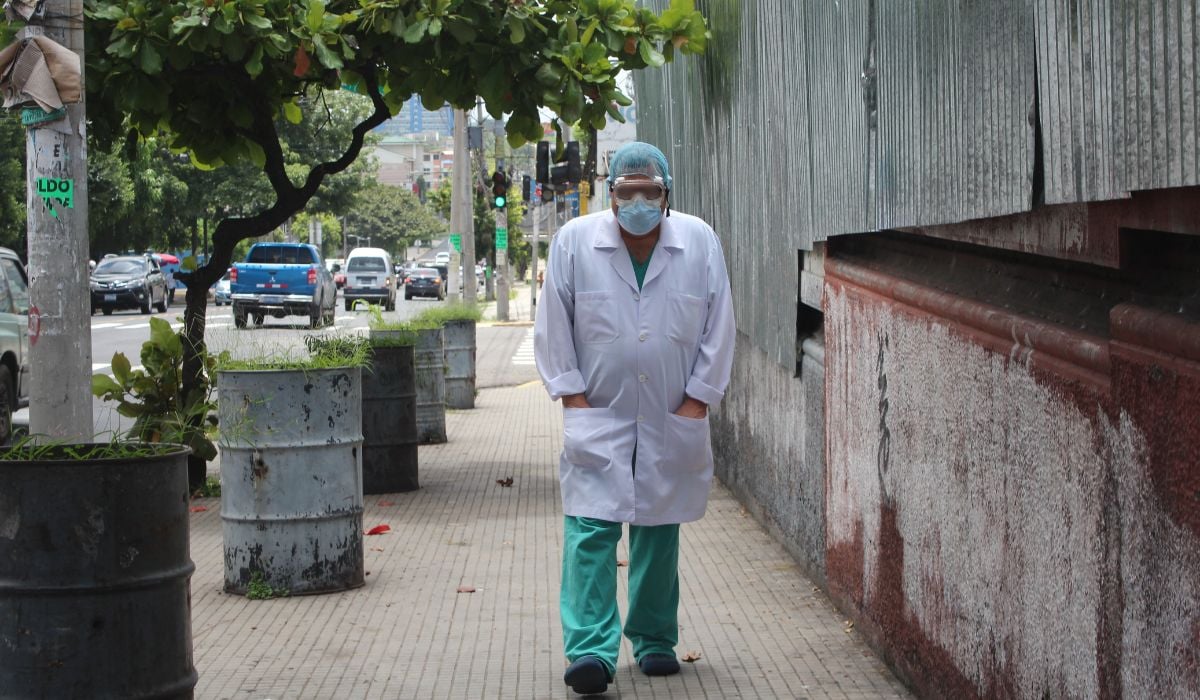Rafael Aguirre, secretary general of the Sindicato Médico de Trabajadores del Instituto Salvadoreño del Seguro Social (Medical Workers’ Union of the Salvadoran Social Security Institute, SIMETRISSS), expressed concern over the Law for the Creation of the National Hospital Network (Ley de Creación de la Red Nacional de Hospitales). According to Aguirre, the regulation keeps the health system fragmented and creates uncertainty about which hospitals will join the new network.
“The law mentions that new hospitals or those intervened by the Dirección de Obras Municipales (Directorate of Municipal Works, DOM) will form part of the network, but it fails to specify what type of intervention qualifies. Would painting a wall suffice to include a hospital in the network?” Aguirre questioned, noting that these ambiguities could be used as a loophole to exclude hospitals from the Social Security Institute and the public network.
He also said the law was drafted without consulting medical professional associations, which undermines the likelihood that it will improve the system. “There are no substantial changes to public procurement procedures, and excessive penalties are imposed for situations that could be addressed by existing bodies, such as the Consejo Superior de Salud Pública (Superior Council of Public Health),” he added.
The law also allows for concessions to be granted for services of any kind. That opens the door to privatization, concessions, and public–private partnerships, he noted.
Aguirre also denounced the provisions on hiring health personnel, calling them a form of “slavery never before seen in a law.” He asserted that the medical community is firmly opposed to the prohibitions established by the regulation.
Article 30 of the law provides that health professionals hired for the Red Nacional de Hospitales (National Hospital Network) shall devote their professional practice exclusively to the health of the inhabitants of El Salvador and may not provide consultations in private clinics or hospitals, except in an emergency or a catastrophe.
Article 31 adds that the private practice of the profession shall constitute the unlawful practice of the profession.
Nueva ley de salud impone condiciones laborales “de esclavitud” señala SIMETRISSS
Rafael Aguirre, secretario general del Sindicato Médico de Trabajadores del Instituto Salvadoreño del Seguro Social (SIMETRISSS), expresó su preocupación ante la Ley de Creación de la Red Nacional de Hospitales. Según Aguirre, la normativa mantiene atomizado el sistema de salud y genera incertidumbre sobre qué hospitales integrarán la nueva red.
“La ley menciona que formarán parte de la red aquellos hospitales nuevos o intervenidos por la Dirección de Obras Municipales (DOM), pero no se especifica qué tipo de intervención califica. ¿Pintar una pared bastaría para incluir un hospital en la red?”, cuestionó Aguirre, señalando que estas ambigüedades podrían ser utilizadas como una trampa para excluir hospitales del Seguro Social y de la red pública.
Además, dijo que la ley no fue consultada con los gremios médicos, lo que reduce las posibilidades de que contribuya a mejorar el sistema. “No hay cambios sustanciales en la forma de realizar compras públicas, y se imponen sanciones excesivas por situaciones que podrían resolverse mediante instancias ya existentes, como el Consejo Superior de Salud Pública”, añadió.
Además, se abre la posibilidad de concesionar servicios de cualquier índole. Es ahí donde se abre la puerta para la privatización, las concesiones y los asocios público-privados, mencionó.
También expresó su rechazo a las disposiciones sobre contratación de personal de salud, calificándolas como una forma de “esclavitud nunca antes vista en una ley”. Aseguró que el gremio médico se opone firmemente a las prohibiciones que plantea la normativa.
El artículo 30 de la ley establece que los profesionales de la salud contratados para la Red Nacional de Hospitales dedicaran su profesión exclusiva en beneficio de la salud de los habitantes de El Salvador y no podrá brindar consultas en clínicas u hospitales privados, salvo emergencia o catástrofe.
El artículo 31 agrega que se entenderá por práctica ilegal de la profesión la práctica privada de la carrera.

